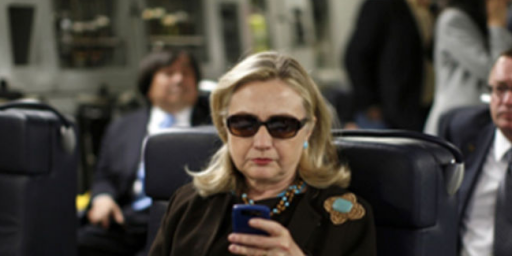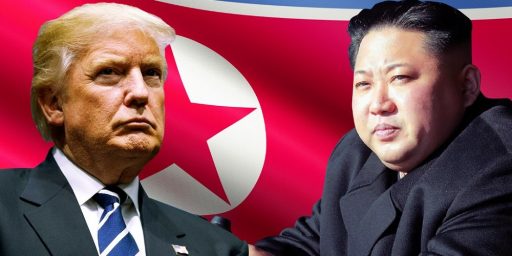Libya Intervention Window Closing
Alain Juppé's concession that "the moment has passed" for NATO to successfully intervene in Libya is correct.
The optimism of BBC’s Mark Mardell notwithstanding, I believe French foreign minister Alain Juppé’s concession that “the moment has passed” for NATO to successfully intervene in Libya is correct.
I examine why this has come to pass in my New Atlanticist post “Libya Clock Running Out.” The core of the argument:
[T]he fact of the matter is that the pro-intervention advocates simply have not made their case that a no-fly zone would achieve fruitful aims. The inertia was with those like former SACEUR Wesley Clark, who argued that America had no vital interests at stake in the Libyan civil war and therefore failed the test of complying with the Weinberger Doctrine.
Anne-Marie Slaughter, who recently stepped down as Director of Policy Planning at the State Department to return to the Princeton faculty, tried valiantly to turn the tide in a Sunday New York Times op-ed. But, ultimately, the arguments amounted to a huge bet that everything would go right and that the pay-off would be massive: “a new beginning of accountable governments that can provide services and opportunities for their citizens in ways that could dramatically decrease support for terrorist groups and violent extremism.” Those are some long odds, indeed.
Much more at the link.







Doesn’t appear to be a link to your main article at the time of writing.
Thanks. Fixed
Soupy twist.
Was there ever a point at which air power alone would have made a decisive difference in favor of the rebels? I’d like to see the evidence.
The historical evidence (from Iraq) is that you can’t prevent helicopter gunships from being used to suppress the population absent boots on the ground.
This is the point that Pat Lang has been making since demonstrations began in Libya. He advocates sending Special Forces into Libya and that’s a strategy that might work. An invasion might work. But a no-fly zone alone would never have worked.
“Was there ever a point at which air power alone would have made a decisive difference in favor of the rebels? I’d like to see the evidence.”
Ditto. This whole debate should never have been framed around an NFZ. The fact that advocates were very often incapable of answer what their vision was if no-fly failed basically crippled their side of the debate.
I think it’s a good piece. Ties up the main points.
I’d just make a quick point that I think is quite telling. We keep hearing a lot about the potential horrors of a pariah state on the Southern Med, but in my view too little focus has been given to the fact that Spain, Italy and Turkey, the three countries arguably likely to get hit most by any Libya fallout by dint of geography, are all opposed to military intervention.
Incidentally, I have to say that Anne-Marie Slaughter’s piece was startlingly poor, even allowing for the fact that a newspaper isn’t the ideal medium for making a coherent argument.
@Dave and @Tano: I was never a no-fly zone advocate and sided with Bob Gates and others who thought it was a half measure that wouldn’t have gotten the job done. Plus, I agree with Wes Clark and others that, aside from humanitarian concerns and vague hope that democracy will come to fruition, we have very little at stake in the outcome here.
I think the idea that we can win wars by remote control with little to no bloodshed is a myth.
There are an awful lot of learned people who supported a no fly zone so I would have to ask what evidence there might be that it would not have made a difference? It’s not Iraq and it’s not Bosnia so those examples aren’t worth much in the discussion.
The threat of a no fly zone would have kept Libyan air power on the ground to some extent, shooting down one plane would have kept them all the ground. Couple that with what such support would have done for rebel ground forces in a fight, recruiting more rebels, and civilian support and we can see a serious mistake was made by not doing this long ago.
The time has passed and we will now look all the more impotent around the world. That emboldens our enemies and worries our friends.